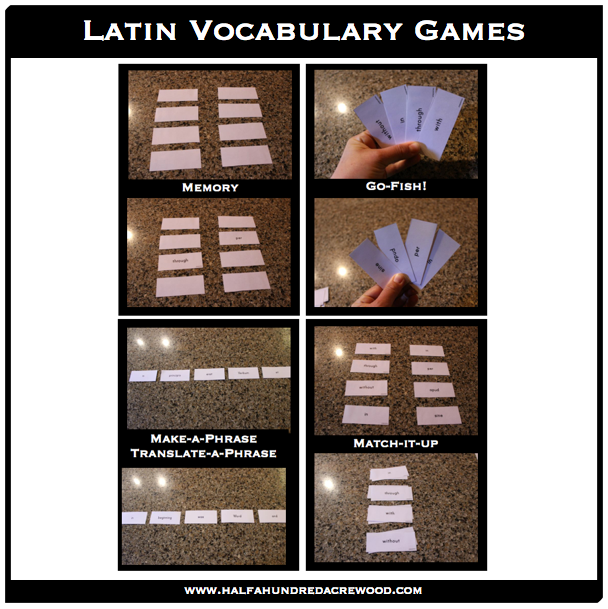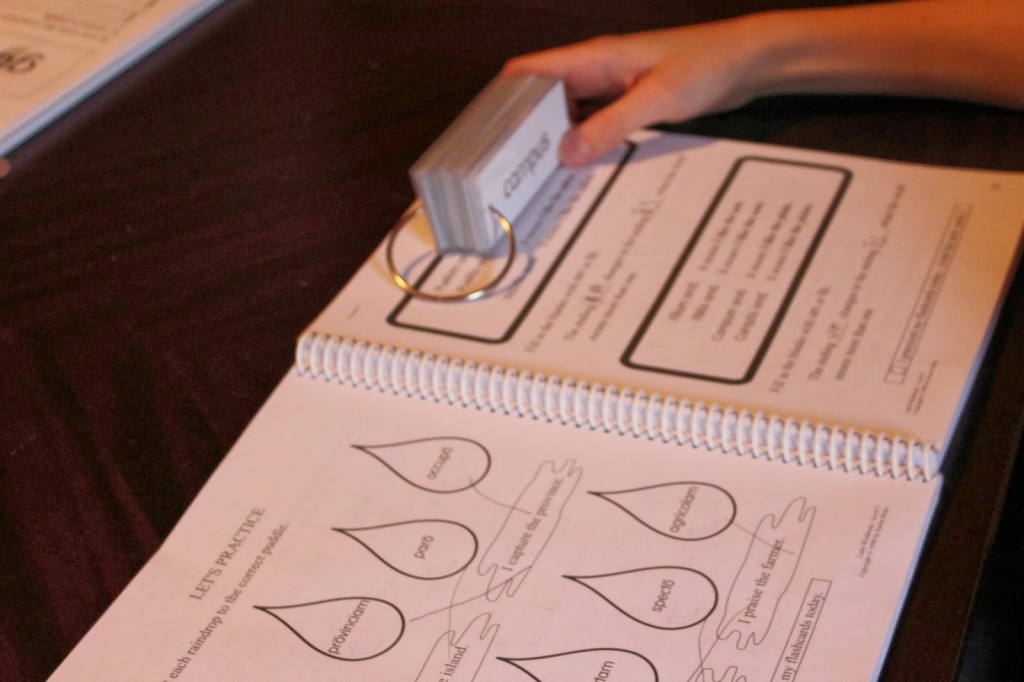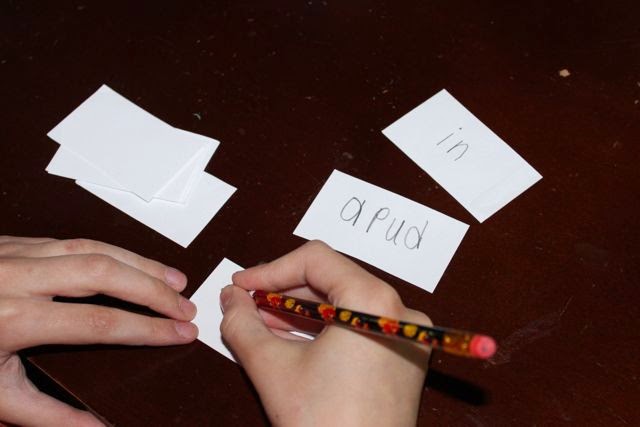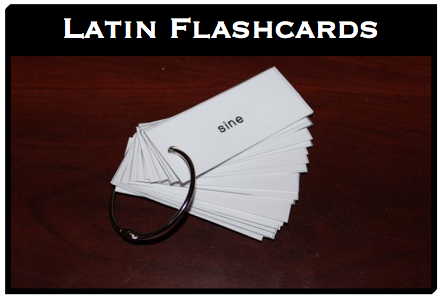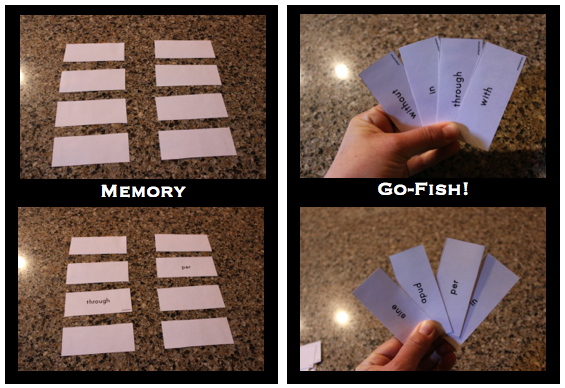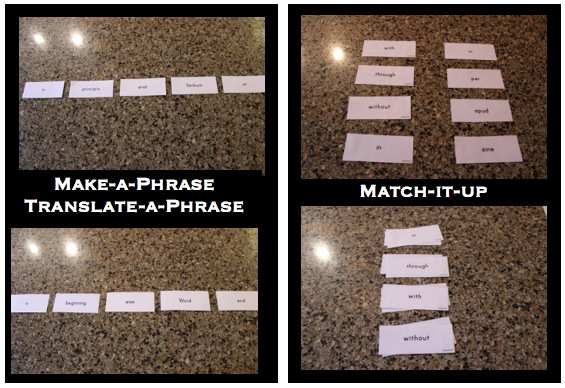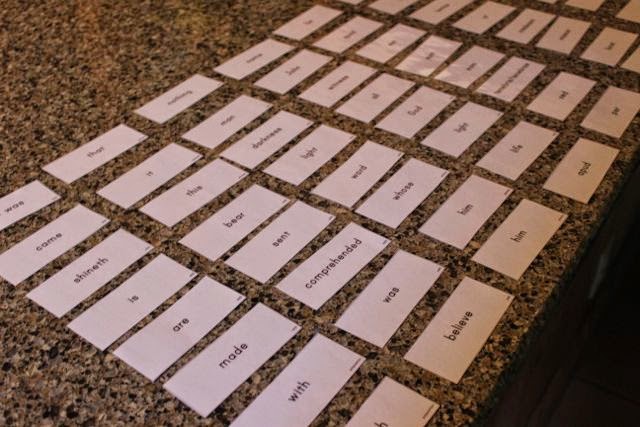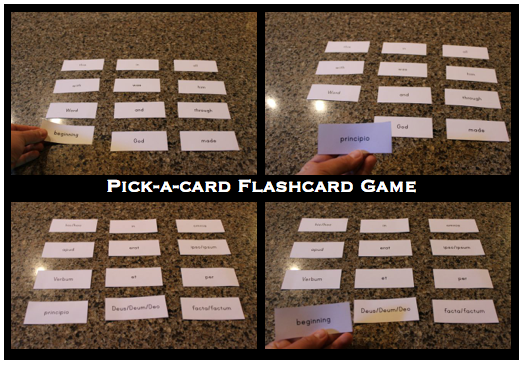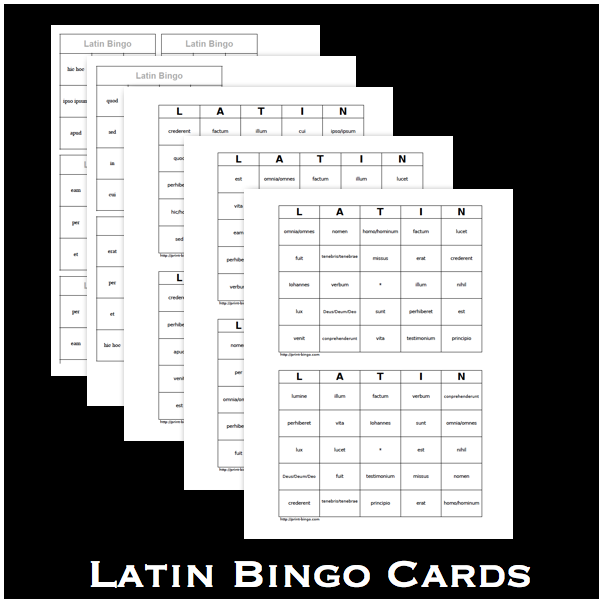Years ago, I wasn’t at all interested in the Latin part of a classical education. I didn’t see why we needed to learn Latin when we could learn a more “useful” language. However, we decided to trust wiser and more experienced folks and just go with it. At first, we just memorized verb and noun endings and a little bit of vocabulary based on John 1. After a few years, we finally added more formal Latin study with our 5th grader. The result?
Our ten-year-old makes a geography-history-Latin connection: “Hey, Mom! You know ‘sylvania’ comes from the Latin word ‘silva,’ which means forest or woods. So… Pennsylvania means William Penn’s woods!”
Being able to make connections like this may not be a really deep reason for loving Latin, but I have absolutely come to love it, even at this early stage of just memorizing some simple vocabulary!
The main way we’ve learned new Latin vocabulary is through… flashcards. Yes, flashcards get a bad rap, but I’m here to tell you that they’ve helped our sons tremendously in learning many things, especially Latin!
Although the following photos depict computer-generated flashcards, one of the best ways I’ve found for us to get started with flashcards is for our children to make them from scratch as an additional way to review.
But… we’ve also used preprinted flashcards for independent practice for our older children. (It took me a while to realize the beauty and simplicity in having them make their own flashcards by hand!)
Though we’ve used flashcards in the traditional way, we also use them to play games. The following are games to play with the Latin and English words on separate cards.
Memory. Set out all cards face down. Turn over two at a time to see if they make a match. If not, turn them back over, and it’s the other person’s turn.
Go-Fish! Pardon me, do you have a “sine”? (Either the person asking the question translates the word when asking, or the person being asked has to think about what the word means.) This is usually good to use after several words have been introduced so that you can have more cards in your deck! For general instructions on how to play the game of “Go-Fish!,” click here.
Match-it-up. Place the cards for a particular week’s memory work face-up with English in one column & Latin in another, and directly match the Latin words with their English translations. (This can also be done on a whiteboard!) A similar version (shown in photo below) is mixing up all the cards and matching them directly with each other for multiple weeks.
The following games are played with flashcards which have Latin on one side and English translation on the reverse.
Make-a-Phrase, Translate-a-Phrase (shown in photo above). This game is for when students are starting to piece together Latin vocabulary words into sentences. There are two opportunities for review: 1) Place the cards in order in either English or Latin to make the phrase or sentence, and 2) Translate and then flip the card to see if you correctly translated the word. (Note that you will need duplicate cards for some words so that you can make phrases like “in principio erat verbum et verbum erat apud deum” = verbum x 2 and erat x 2)
Pick-a-card Flashcard Game. Lay out all cards and students select a card, translate the word, and flip the card to see if they are correct.
Download the John 1 Latin vocab cards games.pdf by clicking here!
(The John 1 Latin vocabulary cards in this document corresponds to the vocabulary for Foundations Guide 5th Edition but may also be used by 4th Edition users.)
By the way, this very same principle can be used for practicing any vocabulary from any language, and states and capitals. {Check out our States & Capitals File Folder Games!}
LATIN Bingo!
Use Latin Bingo cards for extra vocabulary practice.
- A 4×4 grid for practicing prepositions, conjunctions, and pronouns (Up to Week 4)
- Latin Bingo – Vocab up to Week 5
- Latin Bingo – Vocab up to Week 6
- Latin Bingo – Vocab up to Week 7
- Latin Bingo – Noun and Verb Focus (Weeks 4-8)
Bingo Card Generator for fewer words (Weeks 3-4)
Print-Bingo Cards Generator (Weeks 5+)
And we also want to share our favorite Latin curriculum, Visual Latin. You can download two free lessons here.

